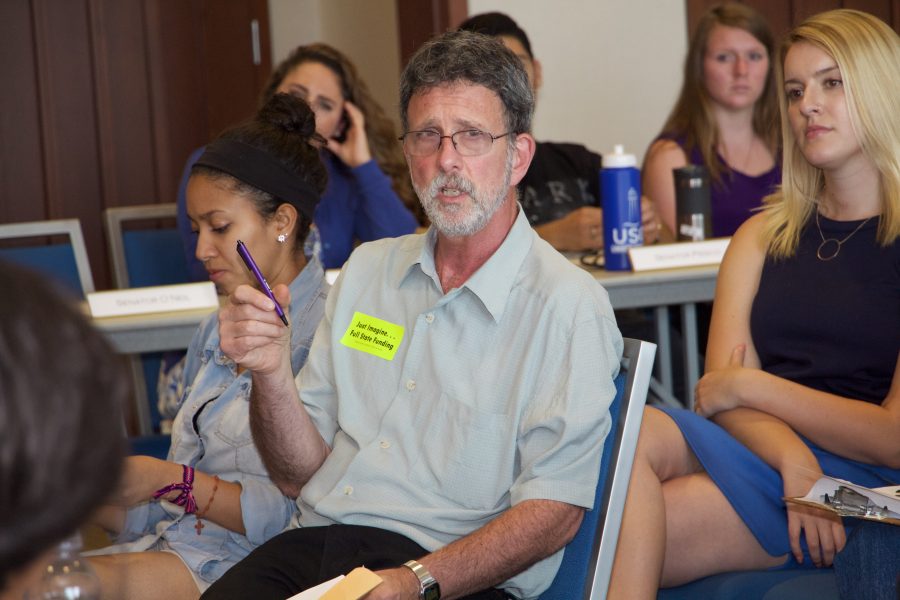On Oct. 16, the Undergraduate Student Government (USG) held its first Student Senate General Assembly of this semester and welcomed all returning senators. The meeting was also attended by three representatives of the Professional Staff Union (PSU) and the Faculty Staff Union (FSU).
Peggy Walsh of the FSU Executive Committee, FSU Vice President John Hess, and PSU President Tom Goodkind, appealed in the name of all unions of UMass Boston to have employees, faculty, and student organizations work closer together to tackle issues in the future.
The reason for that is that the student body, as well as faculty and employees, often want to achieve the same goals and are fighting for the same changes. “We’re on the same side,” Goodkind explained. However, the representatives urged, it is important that a possible future collaboration is based on a formal structure between the unions and the student organizations. The representatives added that it is important that unions especially work closer together with the USG which acts as the voice of the whole student body and takes actions on behalf of the latter’s needs and demands. Therefore, the representatives invited USG members to attend their meetings and develop strategies together throughout the year. At the beginning of this semester, the President and Vice President of the USG, Kathleen Elliott and Ciro Castaldi, attended a meeting with all of the unions where they listened to their different ideas.
As the representatives pointed out, many issues in the past have already affected faculty, employees, and students equally. As an example, Goodkind referred to the planned raising of parking fees for the UMass Boston parking lots. However, with the cooperation of unions and student organizations on campus, the raise was put on hold and all commuters could profit from this non-increase in fees. However, this is only one of many examples in how the unions on campus are able to affect the students in a positive way.
The unions currently also campaign to increase ways of sustainable funding for UMass Boston in order to reduce student debt in the future. Therefore, they actively support the Fair Share Amendment that would raise additional revenue for public education and subsequently all students at UMass Boston by increasing taxes for high-income people. Furthermore, the unions addressed the issue of class sizes increasing in the future, and the necessity of developing a solution. Thus, as Goodkind states, “We need to work more together.”

